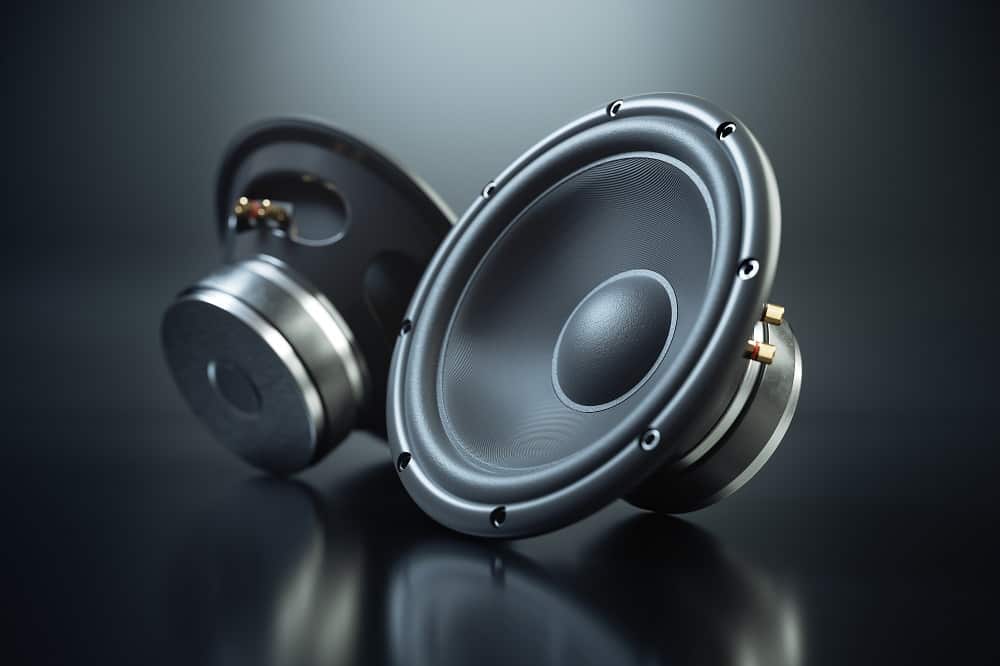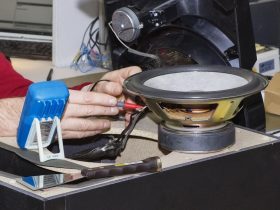If you have a sound system at home that is not labeled for polarity, you have probably reversed the speakers’ wires by mistake. When that happens, you will get an audible difference in the quality of sound. But the question is, do car speakers have the same sensitivity to polarity?
Polarity of Soundwaves
Soundwaves make positive and negative pressures in the air. Positive pressure happens when soundwaves make a change above normal air pressure, while negative occurs when the change is below normal air pressure. The polarity of soundwaves, therefore, refers to the wavelength between the amplifier and the speaker.
Cables connecting the speaker and the amplifier determine polarity. Positive terminals should be connected from end to end; the same case applies to negative terminals. Swapping the connection will reverse polarity and distort sound waves.
Are Car Speakers Polarity Sensitive?
Car speakers are polarity sensitive. Connecting the cables in reverse will distort the sound waves and damage the quality of sound. Built-in car speakers might never have the polarity issue as the manufacturer will have already configured the cables correctly.
However, it is important to understand car speakers and their sensitivity to polarity as you might need to replace your car’s speakers.
How Does a Car Speaker Work?
When alternating electrical current passes through the speaker wires, movement is created. This movement creates an audio signal that makes inward and outward force.
As the speaker vibrates in the forward-backwards motion, negative and positive changes in pressure occur, and sound is formed.
How Do You Test Speaker Polarity?
Polarity is important when it comes to car speakers as the electrical current coming from the amplifier must always match the terminal as positive must go to positive and negative to negative. When the connection is inverted, weird sound distortions can be heard.
If you encounter a situation where the wires are not labeled, it is crucial to test the cables’ polarity before connecting them.
Some of the methods of testing speaker polarity are:
9v Battery Test
Begin by removing a small part of the cable’s protective coating to reach the wires. Place one of the wires on the positive terminal and the other on the negative terminal of the 9-volt battery.
Observe how the speaker moves. If the first move is outward, the cable on the positive terminal is the positive one for the speaker. If the speaker moves inward first, then polarity is reversed.
The Multimeter Test
A multimeter can be used as a current source when electronics get set at low ohms. Once you make the connections, observe for movements just like in the 9v battery method.
Smartphone Polarity Test
If your speakers are already wired, and you can pass audio signals from input to output, then this method is the best to test the speaker’s polarity. Choose an application to test polarity from a site of your choice.
Connect your smartphone’s audio output to the speaker’s input. Place your microphone in front of the speaker. The app sends positive waves through the speaker and detects the type of polarity.
Effects Of Reversed Polarity On Car Speakers
Low or No Bass
This is the most common change that you may notice when your speakers are inversely connected. Bass is produced by the in and out movements that make vibrations. The drum notes become weak when the signals are crossed hence a reduction in the bass magnitude.
Poor Imaging
Most car music systems have a small screen where they project a picture of instruments or just entertainment graphics. Images will be distorted if the car speakers are not wired correctly.
Cancellation
This is common when you are using more than one speaker. Cancellation means the polarity is competing with the speaker’s frequency due to an inverted polarity.
The speakers cancel each other out, and weird sounds can be heard when it happens. It is common when speakers are close to each other or are facing each other.
Can Reversed Polarity Damage Car Speakers?
With all the sound distortions that happen when the connection is made in reverse, it is possible to fear that the speakers will get damaged. The answer is no. Car speakers cannot be harmed by reversed polarity.
The voltage of the speakers doesn’t change whether the wires are connected correctly or inversely. The electrical voltage does not change. Hence the speakers cannot get any electrical damages.
However, it is advisable to avoid inverse connections for long periods as this could fault the speakers.
It is, therefore, true that polarity indeed matters when it comes to car speakers. For quality sound, always having the speakers wired correctly, with each wire connecting to the correct terminal, is necessary.
More Related Articles:












